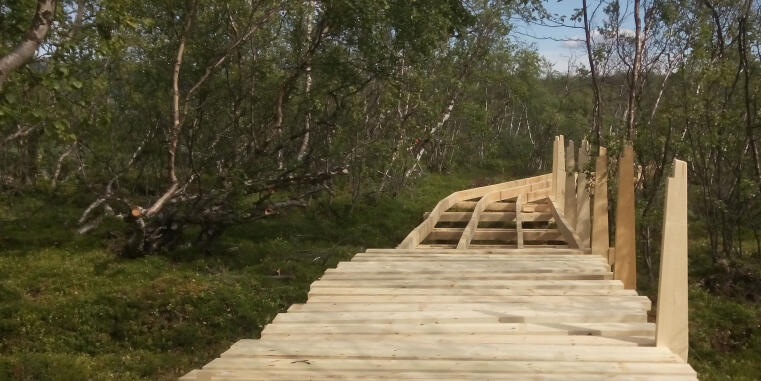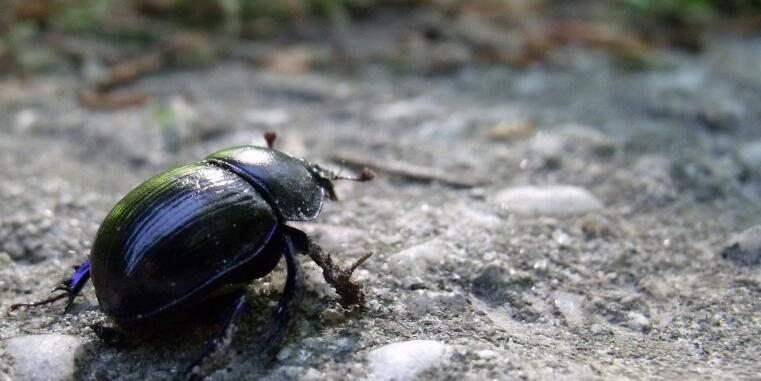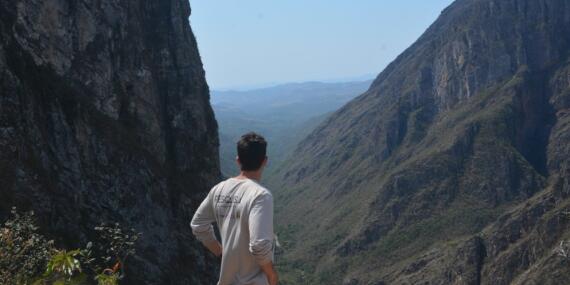







The Applied Landscape Ecology/Ecological Planning working group (AG Buttschardt) researches the effects of human ways of life and land use on the natural and landscape environments and how these can be designed to achieve a regenerative development of landscapes. We assume that landscapes are the spatial representation of socio-ecological systems that can only be fully understood in an interdisciplinary approach. In order to take into account the applied aspect of ecological planning, our research is increasingly transdisciplinary and explicitly includes the noosphere. We therefore cooperate with interdisciplinary centres (e.g. the ZIN or the Brazil Centre), other Universities (e.g. Münster University of Applied Sciences) and practitioners (see links). Our work focuses on Integrated Natural Resources Management, with specific specialisations in Limnology/River restauration, Agroecology and modern agroforestry systems.


Living labs are spaces in which science, civil society, politics and business work together cooperatively, learn from each other, deal with challenges in a reflective manner and jointly develop and test sustainable and desirable futures.
On this day, a variety of program items will take place at three venues in Münster - including a transformative breakfast, a seminar on sustainability and responsibility, a tour with a presentation of the participating real-world laboratories and initiatives, interactive stations, time for discussions and networking over coffee and cake as well as a lecture on possible research collaborations.
The event is part of the “Open Living labs Days 2025” campaign week of the Network Real-World Laboratory for Sustainability in Germany and is organized by the Ulysseus Innovation Hub Social Ecological Sustainability and the Center for Interdisciplinary Sustainability Research (ZIN) at the University of Münster.

On June 17, it was that time again: the Ecological Planning working group met at the Wersehaus for a closed meeting. At this event, our bachelor students presented their work with inspiring talks. The topics, content and also the personal concerns, questions and sometimes also challenges behind them were given enough space to be discussed and debated in detail. Once again, it was great to gain an insight into the many ongoing projects. For the Bachelor's and Master's candidates giving presentations, it was an excellent presentation exercise and an opportunity to discuss specific questions, methodological problems, etc. in a semi-public setting. As always, the event ended with a cozy get-together with paddling & exchange and a rich and delicious buffet.

The (still) steadily growing human population seems to explain why intensification of land cultivation and growth in industrially produced (agricultural) goods is necessary. As it has not yet been possible to decouple economic growth from environmental and resource consumption, this growth is at the expense of common goods (such as soil, water, biodiversity). Exactly 500 years ago, the Peasants' War took place in Germany, triggered by the expansion of the economic desires of the landlords into the communal forests of the farming communities. Since then, the “peasantry” has been under constant pressure as land has become a commodity. The lecture will address the question of what kind of growth is possible in which farming structures if we recognize the planetary boundaries. The build-up of humus in the soil is central to this: Industrial agriculture cannot achieve this - agroecological farming can.

German-Argentinean Cooperation
We are pleased to welcome Prof. Dr. Damián Vega as a visiting scholar in the Ökoplan research group. He has been awarded an on-site fellowship by the University of Münster, funded through the Rectorate's Internationalization Fund, for the period from May 1, 2025, to July 31, 2025. Prof. Vega comes from the Universidad de Buenos Aires (Argentina) and was invited by Dr. Cornelia Steinhäuser.
Together, they aim to investigate how farmers promote health in real-world agroecosystems without the use of pesticides, with a focus on the health of the human–plant–environment continuum. Wheat was chosen as a model crop due to its importance for global food security. The health of cultivated plants is closely linked to the design and management of agroecosystems, the development of local knowledge, and the formation of social cooperation networks. This makes the use of qualitative data collection and analysis methods necessary.

New paper published:
In this study, faecal samples from ringed birds were used to investigate whether there is a correlation between the amount of microplastics eaten and the physical condition of the birds. For this purpose, the weight and wing length of the birds were measured and the faeces were examined for microplastics. Microplastics, mainly in the form of fibres, were found in almost all (98%) of the faecal samples. However, the condition of the birds was unaffected. As the birds studied were mostly migratory, the plastic fibres can therefore be transported to remote areas. The article was published in the journal Science of the Total Environment. https://doi.org/10.1016/j.scitotenv.2025.179306

First publication in 2025:
The article, which was written by Margarete Dytkowicz together with William M. Megill (Kleve University of Applied Sciences) and Tillmann Buttschardt, examines whether beavers that have been reintroduced into the landscape of the Lower Rhine or have settled spontaneously find sufficient food in their environment and what their food preferences are. Extensive mapping work was carried out, supported by volunteers from the Earthwatch organisation, among others. The research shows that sufficient food resources are available in the study areas on the Niederrein and that calls for beavers to be hunted are not appropriate there. Rather, conflicts arise from the expansion of human utilisation claims. The article was published by Academia Environmental Sciences and Sustainability. If you would like to listen to the summary as an AI-supported podcast, you can find it here.